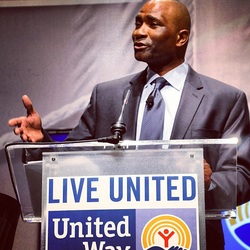 Image: Freedigitalphotos.net
Image: Freedigitalphotos.net September is nearly upon us, that time of year when the Public Relations Society of America promotes Ethics Awareness Month. We PR types are reminded of the PRSA Code of Ethics and the importance of keeping our noses clean.
I applaud PRSA’s efforts. I just wish our profession talked about it more often than once a year.
Public relations is saddled with a reputation of misinformation, half-truths and flat-out lies. Sadly, that rep is sometimes earned; every profession has its unethical practitioners, and PR is no exception. Indeed, I recently stumbled across an old New York Times piece about a survey claiming 25 percent of public relations practitioners admit to lying.
Whether a true measure or not, the reality is that PR is more visible than most fields, so our dirty laundry gets greater exposure. And the sheets need not be exceptionally soiled; even a slight discoloration is enough to destroy a reputation.
Since I prefer an optimistic view, I like to think that activities like PRSA’s Ethics Awareness Month help keep the industry on the straight and narrow. But I’m also realistic that some will eschew.
For example, consider the case of Museum Tower, a high-rise condo development in Dallas in a long-running battle with the nearby Nasher Sculpture Center. In an investigative story by the Dallas Morning News, a public relations consultant for the Museum Tower’s owners is accused of creating false profiles on social media to criticize Nasher. Incredibly, the consultant initially defended his actions as a means to “facilitate a community dialogue.”
Instances like this often come with wonderfully articulate rationalizations. They fool no one.
I was heartened to read the reaction of the PRSA Dallas chapter to the Museum Tower controversy: “In the strongest terms possible, the Public Relations Society of America, Dallas Chapter, repudiates the actions of someone claiming to practice public relations. … He is not a member, never has been a member and never will be a member.”
Yet this demonstrates that the battle for ethical behavior in public relations is far from over. And the responsibility for regaining the reputational ground lost must be owned by all of us in this profession. That means honest, ethical behavior by every person, every time.




 RSS Feed
RSS Feed
